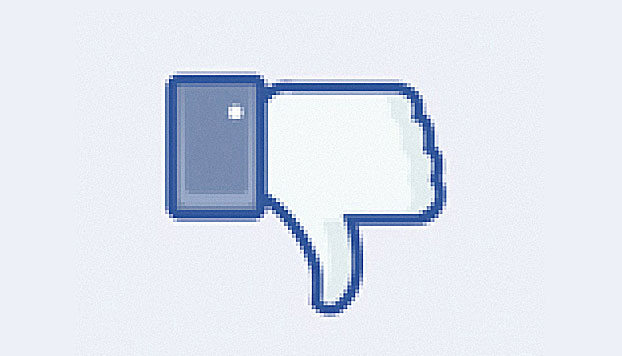Why Is Everyone on the Internet So Angry?

Get the world’s most fascinating discoveries delivered straight to your inbox.
You are now subscribed
Your newsletter sign-up was successful
Want to add more newsletters?

Delivered Daily
Daily Newsletter
Sign up for the latest discoveries, groundbreaking research and fascinating breakthroughs that impact you and the wider world direct to your inbox.

Once a week
Life's Little Mysteries
Feed your curiosity with an exclusive mystery every week, solved with science and delivered direct to your inbox before it's seen anywhere else.

Once a week
How It Works
Sign up to our free science & technology newsletter for your weekly fix of fascinating articles, quick quizzes, amazing images, and more

Delivered daily
Space.com Newsletter
Breaking space news, the latest updates on rocket launches, skywatching events and more!

Once a month
Watch This Space
Sign up to our monthly entertainment newsletter to keep up with all our coverage of the latest sci-fi and space movies, tv shows, games and books.

Once a week
Night Sky This Week
Discover this week's must-see night sky events, moon phases, and stunning astrophotos. Sign up for our skywatching newsletter and explore the universe with us!
Join the club
Get full access to premium articles, exclusive features and a growing list of member rewards.
With a presidential campaign, health care and the gun control debate in the news these days, one can't help getting sucked into the flame wars that are Internet comment threads. But psychologists say this addictive form of vitriolic back and forth should be avoided — or simply censored by online media outlets — because it actually damages society and mental health.
These days, online comments "are extraordinarily aggressive, without resolving anything," said Art Markman, a professor of psychology at the University of Texas at Austin. "At the end of it you can't possibly feel like anybody heard you. Having a strong emotional experience that doesn't resolve itself in any healthy way can't be a good thing."
If it's so unsatisfying and unhealthy, why do we do it?
A perfect storm of factors come together to engender the rudeness and aggression seen in the comments' sections of Web pages, Markman said. First, commenters are often virtually anonymous, and thus, unaccountable for their rudeness. Second, they are at a distance from the target of their anger — be it the article they're commenting on or another comment on that article — and people tend to antagonize distant abstractions more easily than living, breathing interlocutors. Third, it's easier to be nasty in writing than in speech, hence the now somewhat outmoded practice of leaving angry notes (back when people used paper), Markman said. [Infographic: A Typical Day on the Internet]
And because comment-section discourses don't happen in real time, commenters can write lengthy monologues, which tend to entrench them in their extreme viewpoint. "When you're having a conversation in person, who actually gets to deliver a monologue except people in the movies? Even if you get angry, people are talking back and forth and so eventually you have to calm down and listen so you can have a conversation," Markman told Life's Little Mysteries, a sister site to LiveScience.
Chiming in on comment threads may even give one a feeling of accomplishment, albeit a false one. "There is so much going on in our lives that it is hard to find time to get out and physically help a cause, which makes 'armchair activism' an enticing [proposition]," a blogger at Daily Kos opined in a July 23 article.
And finally, Edward Wasserman, Knight Professor in Journalism Ethics at Washington and Lee University, noted another cause of the vitriol: bad examples set by the media. "Unfortunately, mainstream media have made a fortune teaching people the wrong ways to talk to each other, offering up Jerry Springer, Crossfire, Bill O'Reilly. People understandably conclude rage is the political vernacular, that this is how public ideas are talked about," Wasserman wrote in an article on his university's website. "It isn't."
Get the world’s most fascinating discoveries delivered straight to your inbox.
Communication, the scholars say, is really about taking someone else's perspective, understanding it, and responding. "Tone of voice and gesture can have a large influence on your ability to understand what someone is saying," Markman said. "The further away from face-to-face, real-time dialogue you get, the harder it is to communicate."
In his opinion, media outlets should cut down on the anger and hatred that have become the norm in reader exchanges. "It's valuable to allow all sides of an argument to be heard. But it's not valuable for there to be personal attacks, or to have messages with an extremely angry tone. Even someone who is making a legitimate point but with an angry tone is hurting the nature of the argument, because they are promoting people to respond in kind," he said. "If on a website comments are left up that are making personal attacks in the nastiest way, you're sending the message that this is acceptable human behavior." [Niceness Is in Your DNA, Scientists Find]
For their part, people should seek out actual human beings to converse with, Markman said — and we should make a point of including a few people in our social circles who think differently from us. "You'll develop a healthy respect for people whose opinions differ from your own," he said.
Working out solutions to the kinds of hard problems that tend to garner the most comments online requires lengthy discussion and compromise. "The back-and-forth negotiation that goes on in having a conversation with someone you don't agree with is a skill," Markman said. And this skill is languishing, both among members of the public and our leaders.
Follow Natalie Wolchover on Twitter @nattyover or Life's Little Mysteries @llmysteries. We're also on Facebook & Google+.
Natalie Wolchover was a staff writer for Live Science from 2010 to 2012 and is currently a senior physics writer and editor for Quanta Magazine. She holds a bachelor's degree in physics from Tufts University and has studied physics at the University of California, Berkeley. Along with the staff of Quanta, Wolchover won the 2022 Pulitzer Prize for explanatory writing for her work on the building of the James Webb Space Telescope. Her work has also appeared in the The Best American Science and Nature Writing and The Best Writing on Mathematics, Nature, The New Yorker and Popular Science. She was the 2016 winner of the Evert Clark/Seth Payne Award, an annual prize for young science journalists, as well as the winner of the 2017 Science Communication Award for the American Institute of Physics.
 Live Science Plus
Live Science Plus











